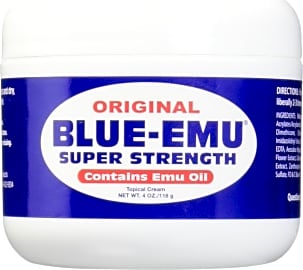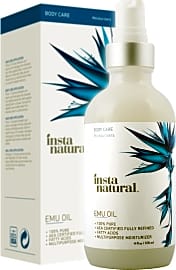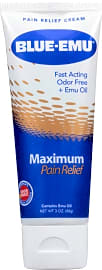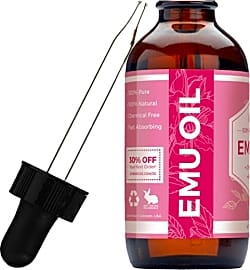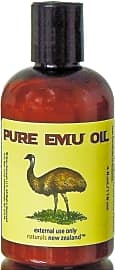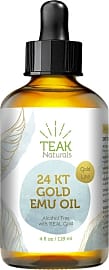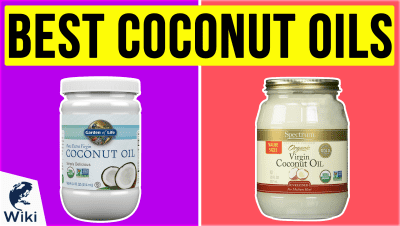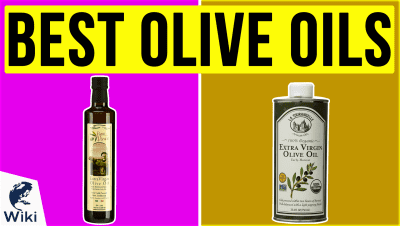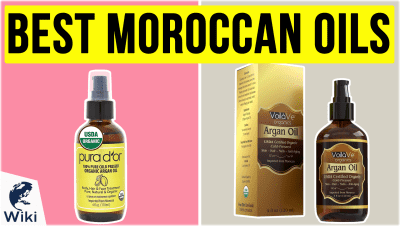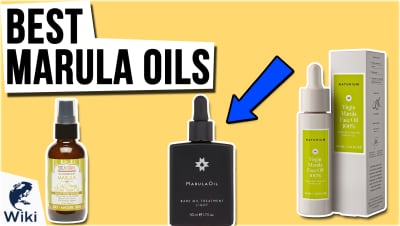The 9 Best Emu Oils

This wiki has been updated 35 times since it was first published in February of 2017. If you experience mild skin or hair problems, then emu oil could be the solution you've been looking for. Derived from the fatty tissue of the flightless Australian bird, this substance contains oleic and linoleic acids, whose moisturizing properties are backed by scientific research. It may have anti-inflammatory properties as well, though there is only mixed evidence to support this claim. When users buy our independently chosen editorial choices, we may earn commissions to help fund the Wiki.
Editor's Notes
October 31, 2020:
Removed Lagoon Essentials Fully Refined and Azure Naturals Ultimate due to availability concerns. We also added Blue Emu Maximum, which is one of the few emu oil mixtures whose manufacturers are able to make credible claims about pain relief since they include a well-understood topical analgesic in their formula.
We have done our best to include only products which have passed inspections from national authorities and which are known to have been produced via good manufacturing practices. This means that the oils featured here should actually come from emus and contain its various organic chemicals in the concentrations that they are supposed to, but not that they will necessarily reduce pain or inflammation or even moisturize skin any better than other types of oil can. Many people claim that emu oil does all of these things and does them uniquely well, but scientists do not understand why this may be the case, nor have they been able to produce solid evidence that it is the case at all.
Finally, we would like to be explicit about the fact that emus must be killed in order for people to harvest their oil. Some farmers also kill these animals for their meat, but the market for that meat is not particularly large and it's often not clear whether a given distributor of emu oil is also making use of the meat. Those who feel uncomfortable about the ethics of using emu oil should take a look at the best coconut oils or olive oils instead, since both of these oils contain the oleic and linoleic acids that account for emu oil's moisturizing properties, sometimes in greater measure.
June 30, 2019:
Emu oil is a versatile product. While many who use it experience relief from aches and pains when applying it directly to sore muscles and joints, it is best known for its moisturizing properties, which can improve the feel and look of skin and hair. For the environmentally-minded shoppers among us, we've picked out several sustainably sourced and eco-friendly options.
In terms of changes, Thunder Ridge Emu Products Pure and H&B Oils have been removed, the prior product due to its tendency to congeal and the latter due to complaints about its aroma becoming unpleasant over time. Pro Emu Best was added and given the top spot, chosen for its purity and multiple size options. Teak Naturals 24K Gold is another new addition; its unusual 24-karat gold-infused formula sets it apart from the competition.
Why Use Emu Oil?
If you're into health and beauty, there's no doubt you'll go to lengths to achieve the softest hair and most youthful-looking skin.
If you're into health and beauty, there's no doubt you'll go to lengths to achieve the softest hair and most youthful-looking skin. Emu oil is a dynamic product that serves multiple purposes, from conditioning dried-out locks to plumping sagging skin and beyond. Here are some of the qualities that make this oil so beneficial.
Emu oil is derived from the fat deposits beneath the skin of the emu, a large, flightless bird native to Australia. The fat is extracted from the bird and refined for consumer use in a variety of applications. The high-fat composition of the oil is, in fact, one of the main reasons why it's so useful.
Emu oil is an excellent moisturizer due to its fatty makeup. And, since it contains smaller fat particles than those found in comparable products, like lotions and serums, it absorbs into the skin very quickly. This is important to note because many moisturizers on the market don't completely sink into and rejuvenate tissues, but rather sit on top of the skin once applied and evaporate, leaving the user with no discernible benefits whatsoever.
Omega 3, 6, and 9 fatty acids can be found in abundance in emu oil, in addition to vitamin C and several other anti-inflammatory compounds. What's more, emu oil is also high in antioxidants, which can help delay the process of cellular degradation that occurs in tissues over time. When our cells break down, we begin to show signs of aging and become more vulnerable to disease. The antioxidants in emu oil offer a natural way to stimulate the skin, thereby slowing the aging process and preventing oxidation.
As you can see, there are many reasons to give emu oil a try. Its nutrient-packed composition sets it apart from the vast majority of personal care products you'll come across at the drug store, and it's generally quite affordable, too.
Where And How To Use Emu Oil
There are many ways to incorporate emu oil into your beauty routine. Whether you struggle with skin or hair issues, this type of product will certainly be able to help. Read on for a few common applications for emu oil and strategies for getting the most out of your personal care regimen.
Emu oil is commonly used as a conditioner to keep hair moisturized and looking great. Individuals who suffer from naturally dry hair can benefit from applying emu oil as a daily conditioner. Similarly, emu oil works well as a leave-in deep conditioning treatment as well. If you live in a particularly arid climate, or develop a flaky scalp in the winter, a potent moisturizer is just what you need to clear up bothersome issues quickly and with minimal effort.
Unfortunately, many of the options out there contain tons of questionable ingredients and don't always produce consistent results.
Maybe your hair isn't dry or brittle, but tends to become tangled easily. If this sounds like you, emu oil will make a welcome addition to your hair care collection. Its oily consistency may be a bit difficult to work with compared to traditional conditioners, but that's exactly what makes it a soothing, gentle detangler. You only need to apply a dollop to your hair, work it through to the tips with your fingers or a comb, and watch as knots and mats release as if by magic — and there's no need to worry about painful tugging and breakage.
People with especially curly or thick hair often require specially formulated products designed to address difficult-to-manage locks. Unfortunately, many of the options out there contain tons of questionable ingredients and don't always produce consistent results. Emu oil is typically a one-ingredient product — perfectly effective in its refined form without additives — so you can rest easy knowing your aren't covering you hair and skin with mysterious, unpronounceable chemicals day after day. Having thick hair doesn't mean you have to resort to damaging products to tame your mane.
Finally, emu oil may be able to address pain and irritation. The anti-inflammatory properties in the oil offer a natural way to potentially reduce minor redness and swelling in areas like the ankles, wrists, and other joints. It can be applied to the skin to soothe itching, and there's also evidence to support its efficacy as a bug repellant.
What Is An Emu, Anyway?
As mentioned above, emus are oversized birds that, strangely, lack the ability to fly. They aren't alone in this quality, however. Ostriches, kiwis, and penguins are some other notable names in the 60-species-long list of existing flightless birds.
As mentioned above, emus are oversized birds that, strangely, lack the ability to fly.
Among all birds, emus are second in size only to the ostrich. Emus are tall creatures that regularly exceed six feet in height. They weigh in at an average of 80 pounds (though larger emus can tip the scales at 130 pounds or more), and have a high-protein diet that consists mostly of bugs like larvae, ants, and millipedes, in addition to supplemental snacks like seeds and plants, depending on seasonal availability.
Emus have a long history with humans. Aboriginal Australians hunted emus for food and, in that process, discovered that the bird's abundant supply of fatty tissue could be used for various medicinal and practical purposes. Emu fat was collected and used as a topical ointment and to polish weapons. Besides their oil, emus are currently farmed for leather, feathers, and meat. Their feathers are soft and make fantastic stuffing for pillows and bedding, and their leather bears a distinct dotted pattern similar to that of ostrich leather, which makes it a coveted material by savvy fashionistas. As you can see, it's no wonder emu products are so appealing.
Emu farming began in earnest in 1970, and it was also around this time that the Australian government began to require licensure to farm emus in order to ensure the beloved bird's population numbers would remain strong far into the future. Today, emus occupy a significant area across Australia and have a conservation status of least concern, meaning they are thriving as a species and are at no risk of becoming endangered any time soon.


